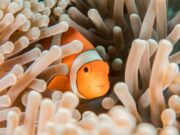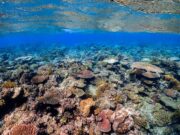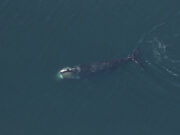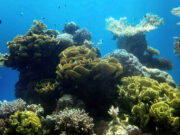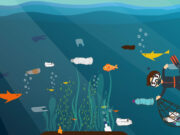Warming seas around the world are threatening corals. But scientists from the Hebrew University of Jerusalem and Bar-Ilan University have noticed that corals in Eilat, at the North of the Red Sea, remain healthy even when exposed to higher temperatures. They suggest that the area could be a unique refuge for coral reefs in the world’s warming oceans.
Bleaching most commonly occurs when warmer than normal sea temperatures force corals to cast out the algae that help feed the coral and give them their colour. Without the algae, the corals turn white and, if the condition persists for too long, eventually die. Branching corals such as table and staghorn coral are especially susceptible to coral bleaching.
But, while the frequency of coral bleaching is globally increasing, no bleaching event has been observed around Eilat, even when nominally bleaching conditions prevail. The Israeli scientists explain the enigmatic lack of bleaching in the Gulf by the existence of a “warm-water barrier” at the southern Red Sea, allowing only heat-tolerant genotypes of corals to enter the Red Sea from the Gulf of Aden. This occurred following the disappearance of corals from the Red Sea during the last glacial period, some 15,000 years ago. The scientists predict that no bleaching is likely to occur in the Gulf of Aqaba in the next 100 years.

